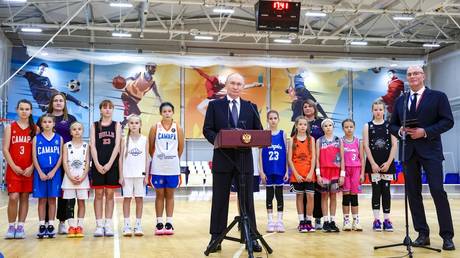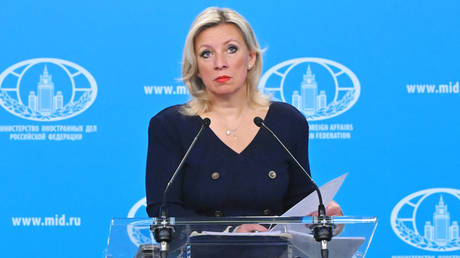A subtle yet significant shift is underway in how the United States approaches its relationship with China. Recent diplomatic overtures, including a meeting between former President Trump and President Xi, suggest a softening of policy compared to the approaches of both the previous and current administrations. This development begs a crucial question: how are those who dedicate their lives to understanding China interpreting these changes?
Professor David McCourt, a leading scholar at the University of California, Davis, has been meticulously tracking the evolution of U.S. policy toward China for years. His research, rooted in extensive interviews with over 130 China experts, revealed a dramatic pivot towards strategic competition during the first Trump administration. Now, he offers a fresh perspective on the current landscape, a “Trump 2.0” era that presents a unique set of dynamics.
Public opinion, as indicated by recent surveys, leans towards a more cooperative approach. However, the community of China specialists remains cautiously analytical, attempting to decipher the signals from a presidency known for its unpredictable shifts. Their interpretations are deeply influenced by their individual positions and perspectives within the complex world of China analysis.

A key difference in this new phase is the direct and powerful role President Trump himself is playing. This has unexpectedly forged alliances between experts who previously stood on opposite sides of the debate. Proponents of engagement now find common ground with those advocating a tougher stance, united by their assessment of Trump’s actions. Some point to continued military support in East Asia and a persistent focus on the consequences of past engagement as evidence that Trump isn’t abandoning a competitive approach.
Conversely, critics of Trump who favor engagement express greater concern, framing their arguments as a challenge to the prevailing competitive narrative. They believe the inherent rivalry between the two nations will ultimately outweigh any individual leader’s desire for cooperation, as articulated by former Biden appointee Mira Rapp-Hopper. The structural forces at play, they argue, are simply too strong.
Professor McCourt, however, questions the emphasis on structural factors. He believes the most significant dividing line now lies in political allegiance and differing views on China, embodied by the rise of the MAGA movement. Despite this, a return to the “engagement” paradigm seems highly unlikely. The dominant framework remains one of strategic competition – a decades-long struggle to shape the international order.
Any commentary suggesting Trump has “gone soft” on China, or that his policies concede U.S. leverage, should be understood not as a rejection of this competitive framework, but as evidence of its continued dominance. Even cautious assessments from within the Biden administration, highlighting potential shortcomings in Trump’s approach to allies, ultimately reinforce the central premise: old-school engagement is off the table.
Professor McCourt’s research delves into the very foundations of this shift, examining the people who shaped the change in U.S. policy. He identifies three distinct groups within the Trump administration – those focused on military security, those concerned with economic competition, and those viewing China as an existential threat to American democracy – all contributing to a new, critical perspective.
He argues that the previous era of engagement rested on three pillars: a unifying narrative, a dedicated community of experts, and specific policy initiatives. The strategic competitors systematically dismantled this framework, reframing the narrative and ultimately influencing policy decisions.
The transition wasn’t simply about differing viewpoints; it was a process of “polarization” within the China-watching community. A once-collegial field fractured into hawkish and dovish camps, creating space for the strategic competitors to gain influence. This involved a competition for professional status and, crucially, a personalization of the debate, fueled by career trajectories and individual investments in U.S.-China relations.
The older generation of engagement-focused scholars often developed a sense of wonder and connection through direct experience in China, building careers around fostering exchange and understanding. Newer experts, however, often view China as a more conventional great power, focusing more on policy and Washington politics. They are also more likely to be critical of China’s human rights record and assertive foreign policy.
While Blinken’s recent visit to Beijing sparked speculation about a potential return to engagement, Professor McCourt believes it was driven more by a desire to avoid crisis than a fundamental shift in strategy. The Biden administration, while adopting a slightly different tone, largely maintains the framework of strategic competition, populated by experts aligned with that approach.
Ultimately, Professor McCourt emphasizes the importance of a robust marketplace of ideas, urging policymakers to consider diverse perspectives and resist groupthink. He hopes that open debate and a nuanced understanding of China will help navigate the complex relationship and prevent conflict. His new book, “The End of Engagement,” offers a comparative analysis of the China and Russia-watching communities, shedding light on the unique factors that led to the dramatic shift in U.S. policy towards China.



